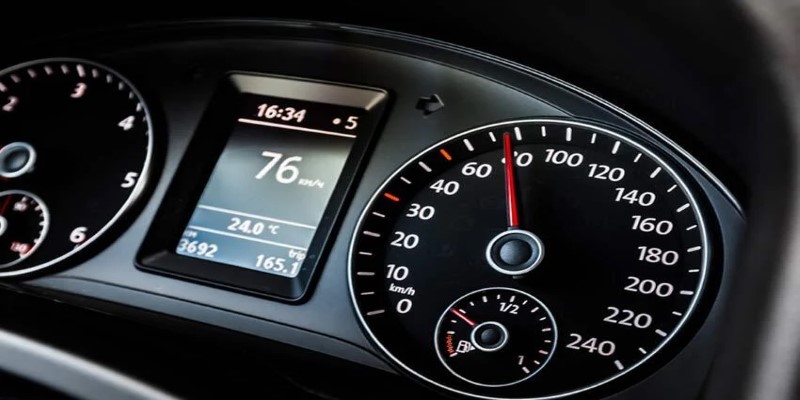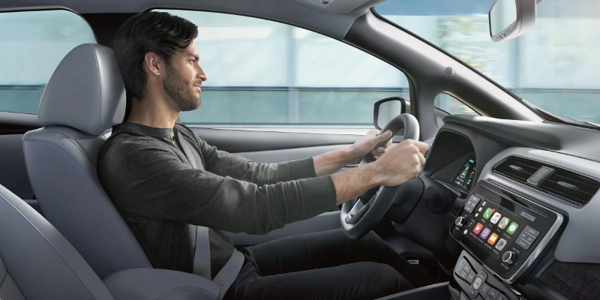The Truth About Pay-Per-Mile Car Insurance And Who Should Get It
When it comes to car insurance, most of us are accustomed to paying a fixed premium every month. But what if your car insurance could be more flexible—what if you only paid for the miles you actually drive? Pay-per-mile car insurance is an alternative to traditional car insurance that bases your premium on how much you drive, which could potentially save you money. But how does it work, who should consider it, and are there any potential downsides? Let’s break it down.
What Is Pay-Per-Mile Car Insurance?
As the name suggests, pay-per-mile car insurance is a type of car insurance where the premium is calculated based on how many miles you drive. In addition to a base rate (which covers things like liability and accident coverage), your premium is determined by the actual number of miles you drive each month. This system can be especially beneficial for drivers who don’t use their cars frequently, as they’ll only pay for the miles they actually drive.
Most pay-per-mile insurance companies use a small device or mobile app to track your mileage. This allows them to assess the number of miles you drive in real-time and adjust your premium accordingly. For low-mileage drivers, this could result in a significant reduction in their insurance costs.
Who Should Consider Pay-Per-Mile Insurance?
Pay-per-mile insurance is not for everyone, but it can be a great option for certain types of drivers. Here are some scenarios where it might make sense:
1. Low-Mileage Drivers
If you don’t drive much—maybe you work from home, take public transportation, or just use your car for short trips—pay-per-mile insurance could be a cost-effective choice. For example, someone who drives fewer than 5,000 miles per year might benefit from a pay-per-mile policy because they would be paying only for the miles they actually drive.

2. Urban Dwellers
Living in a city with reliable public transportation options means you might use your car only on weekends or for occasional trips if this sounds like you, then pay-per-mile insurance could save you a considerable amount of money, as you're not racking up the miles on a daily basis.
3. Car Share Or Secondary Vehicle Owners
If you have a second car or use a car-share service for the bulk of your driving, you might not need full-time coverage. Pay-per-mile insurance could be a perfect option in these cases, especially if your secondary vehicle is used only for special occasions.
4. Drivers Who Don’t Mind Monitoring Their Miles
Since pay-per-mile insurance requires tracking your mileage, you need to be comfortable with the idea of using a monitoring device or app. If you’re okay with this, it could be a great option. However, if you don’t want to track your mileage or are concerned about privacy, you may prefer a traditional insurance policy.
5. People Who Drive For Short Periods
If you're a seasonal driver—perhaps you only drive a car for part of the year, like during the summer months—pay-per-mile insurance could be a great way to reduce your premium when you aren’t driving as often.

Who Should Avoid Pay-Per-Mile Insurance?
While pay-per-mile insurance can be a great choice for low-mileage drivers, it’s not for everyone. Here are a few reasons why you might want to pass on this option:
1. High-Mileage Drivers
If you’re someone who commutes long distances daily or regularly takes road trips, pay-per-mile insurance may not be the best choice for you. The more miles you drive, the higher your premium will be. For high-mileage drivers, a traditional car insurance policy with a fixed rate might actually be more affordable in the long run.
2. People Who Need Full-Time Coverage
If you need car insurance for everyday driving and depend on your vehicle for work or other daily activities, pay-per-mile insurance may not provide the level of coverage you require. The variable nature of the premiums might be less predictable for drivers who use their cars every day.
3. Drivers Who Don’t Want To Track Miles
If you prefer a straightforward, hassle-free insurance policy, the idea of tracking your mileage might seem like an inconvenience. Some insurance companies require you to plug in a device or track your mileage manually through an app. If this feels too cumbersome, a traditional policy might be a better fit.
The Pros And Cons Of Pay-Per-Mile Car Insurance
As with any insurance option, pay-per-mile car insurance comes with its own set of advantages and disadvantages. Let's take a closer look:
Pros:
Lower Costs For Low-Mileage Drivers:

If you don’t drive much, you can potentially save a significant amount of money compared to a traditional insurance policy.
Flexible Pricing:
Since the cost is based on actual driving habits, you only pay for what you use. This can be a good option for people with irregular driving schedules.
Great For City Dwellers:
If you live in a city and rely on public transportation, pay-per-mile insurance can offer significant savings.
Cons:
Higher Costs For High-Mileage Drivers:
If you drive a lot, the costs can add up quickly. Pay-per-mile insurance may not be as cost-effective for drivers who regularly commute long distances.
Inconvenience Of Tracking Miles:
Tracking your miles requires you to use an app or a device, which may be inconvenient for some people. If you forget to track, it could result in overpayment or underpayment.
Limited Availability:
Pay-per-mile insurance isn’t offered by all insurance companies, and not all states allow it, so availability may be an issue depending on where you live.
Is Pay-Per-Mile Insurance Right For You?
Pay-per-mile insurance is a great option for those who don’t drive much and want a flexible, cost-effective insurance solution. If you're a low-mileage driver, live in an urban area, or only use your car occasionally, this could be a smart way to reduce your car insurance costs. However, if you drive regularly or require full-time coverage, a traditional insurance policy may still be a better fit for your needs.







